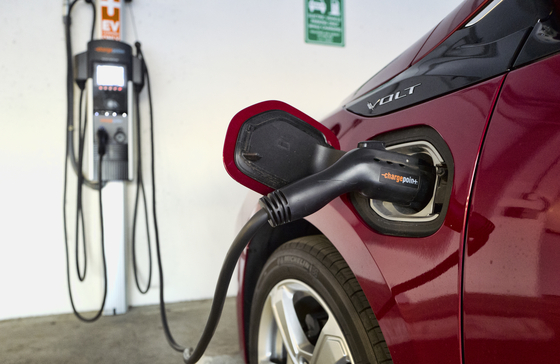
Electric vehicle battery charging. AP=Yonhap News
The weight of the battle between LG Energy Solutions and SK Innovation, which ran a parallel in the dispute over the infringement of electric vehicle battery trade secrets, leaned toward LG. After the U.S. International Trade Commission (ITC) filed the lawsuit in April 2019, it was about 22 months later (local time), as LG raised its hand.
Battery Litigation Progress and Prospect
LG, alleging infringement of trade secrets, first sued ITC a month before suing SK to the Korean police. The ITC proceedings, unlike ordinary civil lawsuits in which the parties contend with the evidence presented by the parties, can directly investigate matters that the ITC suspects. This means that even if the party who filed the lawsuit cannot provide evidence to prove the damage, ITC can play part of its role.
ITC accepted LG’s request and conducted a forensic on SK’s digital equipment in October 2019. Forensic is the task of analyzing archived data and recovering deleted records to determine the facts. After discovering the damage of evidence, the ITC made a default judgment against SK in February 2020.
LG wins after acting 3 times
The ITC announced the date of the Final Determination in October 2020. In the industry, it was interpreted as a message from the ITC recommending an agreement between the two sides based on the decision to lose early. However, there was no agreement between the two companies. According to the industry, LG demanded a settlement amount of close to 3 trillion won, while SK offered hundreds of billions of billions, which widened the gap. Also, SK’s public apology requested by LG was not accepted. LG is in a strong position that it cannot agree on a’watch-type’ agreement to prevent similar events from happening again in the global battery competition environment.

Reporter Jaemin Shin
In the meantime, the ITC’s final decision has been postponed three times. There were delays in procedures such as face-to-face meetings within ITC due to the novel coronavirus infection (Corona 19), political postponement following the US presidential election, and rumors of inducing agreement between the two companies. Meanwhile, some lawmakers in Georgia and Tennessee sent a letter in December last year calling for an agreement between the two companies. This is due to concerns that if SK loses the company and is subject to business sanctions, it could adversely affect the local economy. There is a SK battery plant in Georgia, and a Volkswagen electric vehicle plant in Tennessee, which has decided to supply SK batteries. In Korea, Prime Minister Jeong Sye-gyun said last month, “A quarrel between the two companies makes the other (a different country company) only good things. Please solve it quickly,” he recommended.
SK has 60 days left for this decision. The best scenario for SK during this period is that US President Joe Biden decides to reject the ruling after a Presidential Review. There is also a way to reach an agreement with LG.
SK “Influence on US profits”
Immediately after the ruling, SK officially stated, “It plans to focus on conveying that SK batteries and the Georgia plant will play a key role in the US government’s eco-friendly car industry, and that it can create thousands of quality jobs.” The word’agreement’ was not included in the official position. However, the expression “plans to find a solution that can protect the interests of customers” leaves room. Inside SK, there are opinions to seek an agreement with additional litigation after filing an appeal to the Federal Appeals Court.

An electric vehicle factory in Germany. AP=Yonhap News
LG also said in a press release, “If the defendant (SK) pays a bond, the order will be temporarily suspended, and if an agreement is reached during this period, the operation of the plant will not be affected.” Deposits are temporary deposits of potential settlement funds in court. Through this, the intention to agree is communicated to the other party.
However, LG is in a position that SK, who infringed on trade secrets, should first propose an unconventional agreement method. LG said, “Since 2010, there have been no cases where the ITC decision was turned over into an appeal.” “I humbly accept the final ITC decision and urge you to actively close the lawsuit as soon as possible by making an appropriate proposal.”
Reporter Sunwook Choi [email protected]
